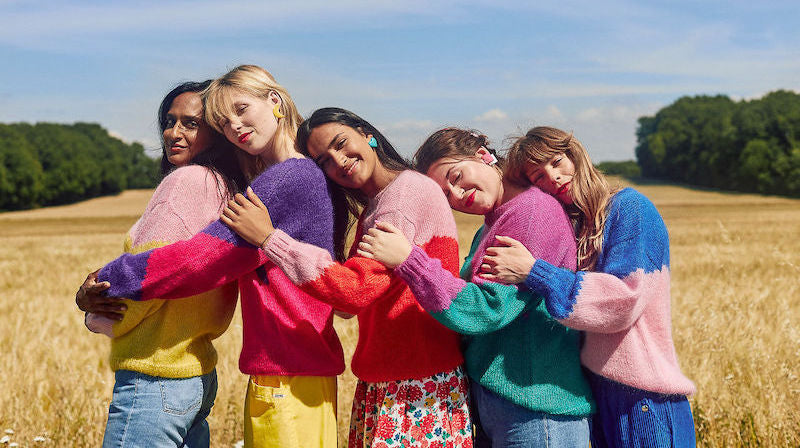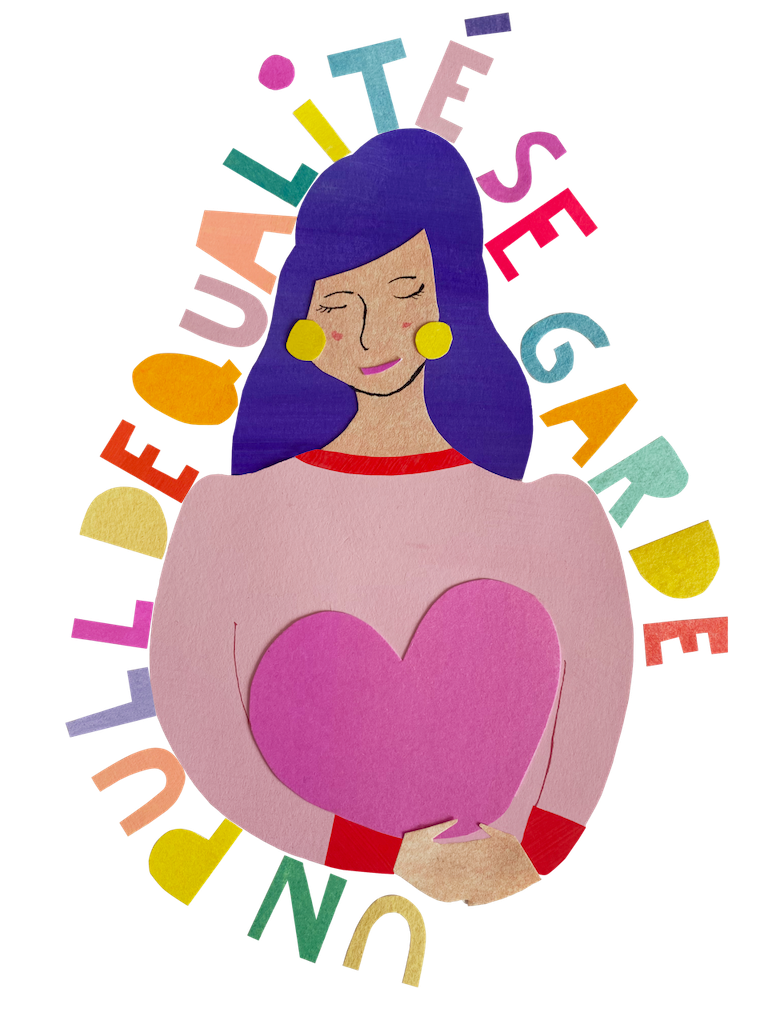In my quest for meaning, I scoured the entire MOHAIR industry to find ethical farms and make sure that the animals were treated well.
I was lucky enough to meet some very nice people, notably Audrey and Mathieu, the owners of the Mohair aux 4 vents farm near Sarlat. Chloé Cohen of nouveaumodelepodcast joined me for an interview on the road. Discover the interview/podcast at ferme aux 4 vents here.
At the same time, at trade fairs, I met the people involved in the South African yarn industry and found some really incredible quality fibers, which once knitted, ensured great durability for the sweaters.
I followed closely the creation of the RMS standard, which came into being in early 2020, at the very beginning of my brand. Here's more information on this certification....
1/MSA: Mohair South Africa
is an active South African organization committed to the promotion and development of an ethical, sustainable and recognized industry.
This organization has worked hard with Textile Exchange to achieve a responsible mohair standard.
All farms have been audited and third-party accreditation ensures a sustainable and ethical supply chain.
2/ Textile Exchange is a global non-profit organization dedicated to reducing the negative impacts of the textile industry on water resources, soil, air, animals and the human population.
Textile Exchange has introduced various certifications for leather, cotton and wool (RWS Responsible Wool Standard).
In 2020, it published its new standard, developed with MSA: the Responsible Mohair Standard - RMS.
3/ RMS: This certification was developed with the participation of farmers, animal welfare experts, land conservation experts, brands and retailers from around the world.
The objectives of this standard are to provide the industry with a tool for recognizing best practices and establishing rules for land management and animal treatment.
The new standard traces and identifies mohair and ensures that it comes from farms with breeding systems that respect RMS rules .
These rules have been established and concern :
- land management aimed at maintaining soil health and biodiversity, and avoiding water eutrophication, for example.
- goat rearing to respect animal welfare. These rules may concern, for example, shearing, end of life, feeding...
4/ In concrete terms, how are things going in South Africa?
There are around 800 farms in South Africa. The goats are raised in the open air. The majority of South African farmers sell their fleeces to 2 groups who sort them by quality and transform the mohair into rough-cut rovings. These are then sold to spinners all over the world.
When you buy a ribbon of RMS-certified South African mohair, you can tell exactly which farms the fibers come from, as they are scrupulously traced, but you can't be closely linked to any particular farm, as the washing and carding process is done on a large scale and requires quantities from many farms to be pooled.
5/ Can we be 100% sure that animal welfare is respected?
I chose mohair for a variety of reasons, but also because, after digging into the subject, I believe that the RMS-certified Angora goat farms in South Africa are respectful.
- because certification provides a framework and rules.
- because Angora goats are only bred for their fleece, not for their meat. But to obtain a quality hair, like the one used in my mohair and silk yarn, you need a well-treated goat. A French breeder once told me: "You can see everything on a goat's coat. Tension, stress, a birth leaves its mark... hair is the reflection of the animal's life".



